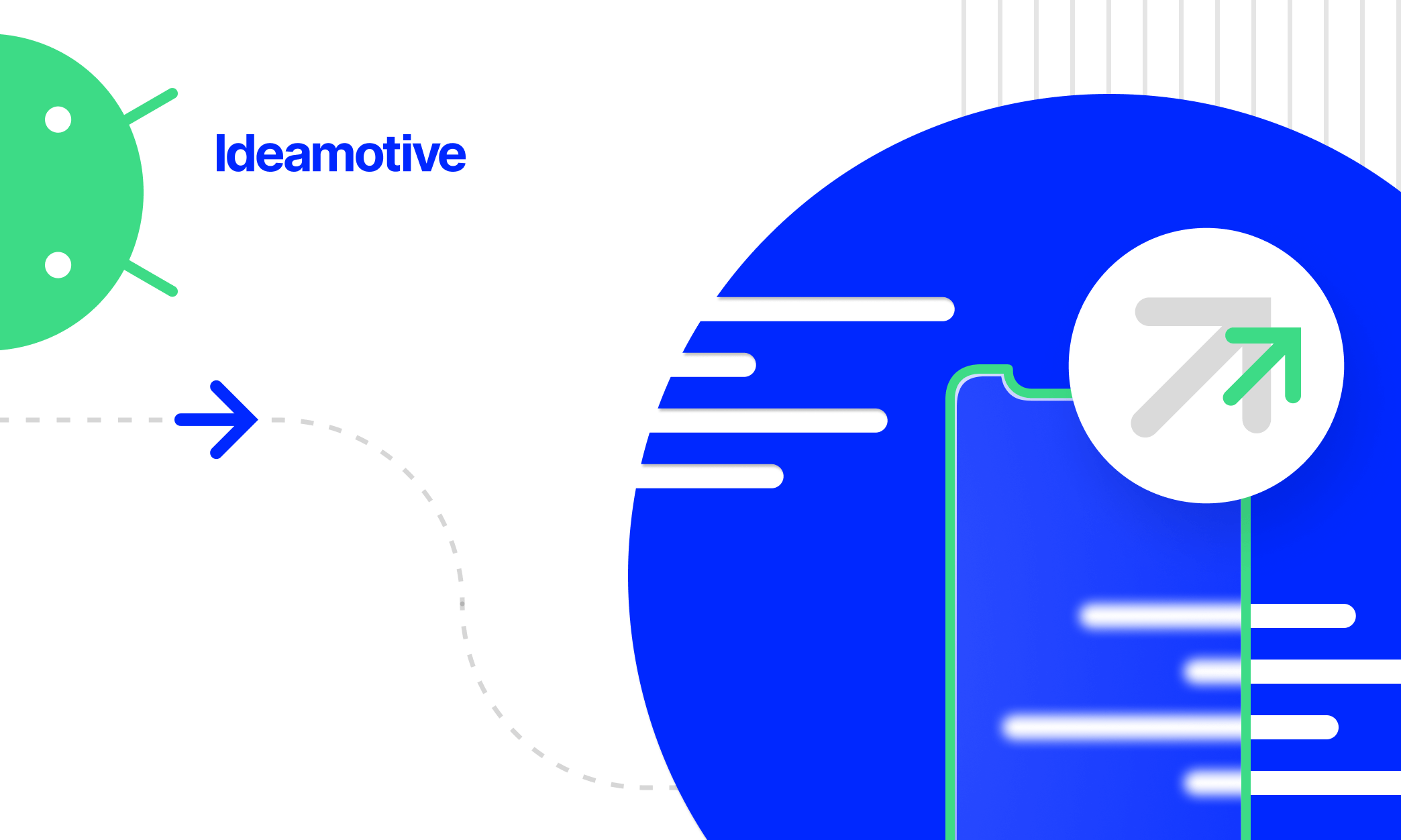Hire Scala Developers, Programmers And Consultants
Matched with your industry, project and company culture.
Our rating on
Delivering exceptional Scala development talent swiftly and smoothly.
Diverse Source Of Talent
- Freelance network of vetted Scala developers
- Top software companies from the CEE region
- Ideamotive's core Scala development team
Streamline Hiring Process
- Only pre-vetted talent and trusted partners
- Scala experts matched with your industry, company culture and project type
- Shortlist of talent under 24 hours
Ultimate Business Support
- Your dedicated Talent Specialist
- Payments, insurance, legal and admin taken care of and united under one invoice per month
- Talent management and performance reporting during whole collaboration
Startups, scale-ups and enterprises build their teams with Ideamotive






How to hire Scala developers with Ideamotive?
Tell us about your business requirements
Talk to our advisor about your exact needs, product specifics, and team dynamics. The more we know at this step, the better the future match will be.
Get the shortlist of talent under 24 hours
Based on the interview, we will shortlist Scala Developers best suited for your needs.
Hire and onboard with a money-back guarantee
We will onboard the talent and take care of all payments, insurance, reporting, and other dull processes. There is also a 7 days money-back guarantee after the project's kick-off.
We’ve been extremely satisfied. We work with multiple partners, but they’re our main supplier because of the quality of their work.

Håkon Årøen
Co-founder & CTO of Memcare
Ideamotive has a huge pool of talent. Don’t just settle for someone: find a person who understands your project and has the competencies you need.

Julian Peterson
President, Luminate Enterprises
They understand and navigate the industry to deliver an outcome that will truly stand out. Despite a heavily saturated market, they’ve delivered creative solutions that I haven’t seen before.

Adam Casole-Buchanan
President, Rierra INC
They are very flexible, providing a team of developers on short notice and scaling the size as needed. Their team meets tight deadlines, including some that only give them a few hours to do the work.

Sylvain Bernard
Event Manager, Swiss Federal Institute of Technology Lausanne
Our Success Stories
JRPass: building a ticket distribution system for the Japanese railway network
Read the story of how combined our business expertise with outstanding web development, increased conversion rates, and boosted sales.

Our project manager had things taken care of and their backend developers had great technical abilities. They’ve been the best we’ve had so far!
Daniel de Nieuwe, Senior Product Manager, JRPass.com
Close
AURA: building a mobile app with React Native for a medtech startup from London
How did our experts create a diagnostic mobile app with highly intuitive UX/UI fit for elderly patients from scratch?

The design is accessible for many users, making the project a success. Ideamotive was organized and communicative throughout the engagement. As a result, they have a strong partnership.
Silvia Novak, Head of Product at Entia Ltd
Close
Packhelp: providing the right set of tech talent for a fast-growing startup
How we advanced the work on a new product and made it possible to meet the deadlines from investors

They provide good, steady work, and I can trust them. They’ve never failed, and we don’t have any problems with them.
Arkadiusz Wasilonek, CTO & co-founder of Packhelp
Close
AICrowd: Taking care of a YCombinator Alumnus code
How have we improved the quality of the code, reduced technical debt and enhanced the platform security of an AI marketplace?
Leverage The Full Power Of Scala
Never stop scaling
Grow your product steadily from day one. Scala guarantees smooth scalability for any kind of digital project.
Set performance benchmarks
Get data to users in no time. Guarantee top performance of your digital products.
Fully understand your users
Take your data analytics to the next level. Scala is the leading language used for Big Data development.
Constantly deliver new features
Surprise your users daily with new features. Scala is the top choice for microservices-based digital products.
How To Hire Scala Developers Perfect For Your Needs?
Did you know that Scala developers are the best paid IT experts in the world? In the United States, Scala programmers earn on average $150k per year — around $10k more than the second-place Go developers. Why do companies want so much to hire Scala developers that they pay them much more than experts in other programming languages?
The issue is, as usual, the availability of Scala programmers. According to the 2020 Stack Overflow Developers Survey, only around 3.9% of professional developers are knowledgeable in Scala. On the other hand, 38.4% of professional devs know Java — the language most similar to Scala.
Why, despite the seemingly low popularity of the language, companies worldwide want so much to hire Scala developers? What is so incredible about this technology? And, finally, if you decide to choose it for your next project, how can you hire Scala developers, considering the limited number of such experts on the market?
We cover all this and more in our ultimate Scala hiring guide below.
Why choose Scala and hire Scala developers for your next project?
Scala was designed at a Swiss research institute École Polytechnique Fédérale de Lausanne by Martin Odersky. Released internally in late 2003 and then publicly in early 2004, the language has gained interest early but for a long time didn't reach a wider public. This changed approximately in the early 2010s, when more and more robust web projects appeared, requiring a technology that could handle them.
Scala happened to be the thing needed. Based highly on Java, it combined the principles of object-oriented and functional programming principles, providing an amazingly performing, robust technology. As the name suggests, Scala offers benchmarks-setting scalability features, making it suitable for the largest of digital projects.
The language, just like Java, is a general-purpose one, making it usable for virtually any project you might think of, from web back-end to desktop software. However, there are two especially popular use cases of Scala:
- Big Data — number one area of interest for Scala programmers
- Apps based on microservices architecture
If you want to invest either in robust data pipelines and data analytics or large microservices apps, you should definitely consider hiring Scala programmers. But how to find the ones who can truly deliver and meet your requirements? We dedicate the rest of our guide to this matter.
Must-have hard skills for Scala developers
Before you start the hiring process, it’s important to clarify the technical requirements your candidates must meet. This will, of course, slightly vary depending on the project you have in mind. However, when it comes to Scala development, there are a few skills that every Scala programmer should have. We list the most important ones below.
- Expert knowledge of Scala
Scala is not an easy language to learn — it’s complex and unforgiving for beginners. That’s why there are not many Scala programmers and those who do work with the technology are often paid a lot more than their peers knowledgable in other languages. However, there are advantages of this complexity. Scala forces much cleaner, more scalable code, making it easier for companies to grow and meet the needs of even hundreds of thousands of customers.
When you hire Scala developers, make sure they are experts in the language so they can truly help you leverage its potential. - Proficiency with Java and JVM
Scala was designed to be a significantly better language than Java. Despite the fact that Java has changed a lot since the introduction of Scala, there are still visible differences between the technologies that make businesses choose one over another. Be aware, however, that knowledge of Java often comes in handy in the work of Scala developers. That’s why, when you hire Scala developers, look for those who experienced working in both technologies. - Experience with Apache tool stack
Apache is the leading company developing tools for Big Data development. When it comes to Scala, the handiest of Apache’s software will be Spark and Kafka. Knowledge of Hadoop (Java’s equivalent of Spark) might also be useful. - Experience with relevant frameworks and libraries
The tools from Apache are great but there are way more options to improve the efficiency of your Scala development. For example, playframework is a popular solution for web projects built with Scala, while smile is a machine learning engine. A true Scala programming expert will surely know and recommend additional solutions as well. - Knowledge of various operations on data
Consider areas like database management (SQL, NoSQL, or both — depending on what your company is using), data warehousing (e.g. with aforementioned Hive or Amazon Redshift), data routing (e.g. with Apache NiFi), experience with traditional ETL pipelines, as well as modern cloud computing (again, based on the platform you are using at your company — such as AWS, Azure, or Google Cloud).
The soft skills crucial for efficient Scala development
When you hire Scala developers (or any other technical expert), the category of hard skills is often the one that you want to focus on the most. And there is nothing wrong with that — in fact, without the right technical knowledge, the project you have in mind can’t be developed.
However, you should not ignore soft skills either. They can have a high impact not only on how your new Scala programmer works but also on how your whole team cooperates.
When hiring Scala developers, look especially for experts with the following soft skills:
- Desire to learn new things
To be always up-to-date with the most recent development in the area of Scala development. - Great multitasking
To swiftly switch between different objectives and tasks that arise throughout the day. - Attention to detail
To deliver clean code of the highest level and as issue-free experience for users as possible.
Finding Scala developers that fit your business perfectly
Besides hard and soft skills, there is one more area you should carefully consider when hiring Scala developers — the company fit. Look especially closely at the following two areas…
- Industry fit
Different types of companies might require different technical solutions to thrive. Every industry has also slightly different technical obstacles to overcome. To make sure your project goes truly smoothly, hire Scala developers who have previously worked within your business vertical. - Company culture fit
Alongside a set of soft skills, company culture fit guarantees better cooperation across the company as well as more innovative solutions delivered by your teams. Whether you are hiring Scala programmers or other experts, always first look at the values that drive your business and find candidates who also consider them as important. Such values can include the preferred style of management, the preferred work environment (startup vs corporation), or a focus on diversity.
Why hire remote Scala developers?
The average salary of a Scala developer in the United States is $150k/year. However, globally this average is significantly lower — $76k/year. This is because many Scala programmers are based in countries with lower costs of living and therefore have lower salary requirements.
You can also leverage this advantage and hire Scala developers from other countries. For example, coders in Central Eastern Europe have indeed lower salary requirements but they are also considered one of the best ones in the world, delivering top-notch results. This means that by choosing remote Scala developers you don’t only get a chance to better optimize your costs but you also get access to top worldwide talents knowledgeable in the technology.
What other experts will you need to onboard?
Scala developers are the crucial element of every Big Data or microservices project. However, there are more experts you will need to truly secure the success of your project.
And whether you need talented designers, professional back-end and front-end developers, or knowledgeable IT project managers and Product Owners — we can help you find them fast. At Ideamotive, we run the industry-leading network of IT talents from all disciplines.
Just get in touch with our consultants and we will swiftly connect you with the right experts based on your company’s profile and any unique requirements you might have.

Execute your vision with trusted and battle-tested Scala developers perfectly suited to your business needs.





